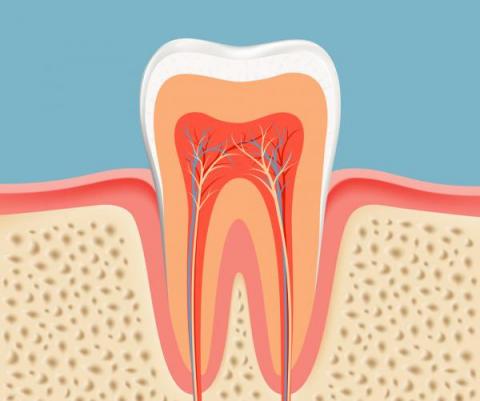
What is a Root Canal treatment?
Root canal is the natural cavity within the center of the tooth. The pulp or pulp chamber is the soft area within the root canal. The tooth's nerve lies in the middle of the root canal.
Root canal treatment is a frequently performed dental procedure to treat a tooth with infected or dead pulp tissue or when the tooth is badly decayed. During a root canal procedure, the nerve and the infected pulp tissues are removed then the inside of the tooth which is called pulp chamber is cleaned and shaped and then fially sealed with filling.
How to recognise a Root Canal problem:
A diseased tooth's pulp may cause inflammation or infected. Some indications that a tooth may need a root canal treatment are:
- Sensitivity to heat
- Sensitivity to cold that lasts longer than a couple of seconds
- Significant pain when biting or chewing
- Loosening of the tooth
- Swelling of the gum near the affected tooth
- Facial swelling
- A discolored tooth, with or without pain
- A broken tooth
What can damage the dental pulp?
- Dental decay that is untreated or deep-seated
- Decay underneath a deep filling
- Habitual tooth grinding
- Advanced gum disease
- An injury that creates an abscess in the bone
An untreated cavity is a common cause of pulp infection. The decay erodes the enamel and dentin of the tooth until it opens into the root canal system. It allows bacteria to infect the pulp. Infections inside the teeth do not respond to antibiotic treatment very well. The inflammation caused by the infection restricts the tooth's blood supply, so antibiotics in the bloodstream can hardly reach the infection. The reduced blood supply also limits the pulp's ability to heal itself.
Why choose Root Canal treatment?
The root canal treatment is the last possible option to save your own teeth. Keeping your natural teeth also helps you to avoid more expensive and comprehensive treatments, such as implants or crowns. It is always better to keep your natural teeth if at all possible.
If you have an infection of the pulp, you may not feel any pain at first. But if it left untreated, the infection will cause pain and swelling. In some cases, an abscess will form. Eventually, the tooth may need to be extracted. If a tooth is missing, the teeth next to it can drift out of line and can become overstressed. If an infected or traumatic tooth that needs root canal treatment is ignored, not only can you lose the tooth, but also the infection can spread to other parts of your body.
Expectation after Root Canal treatment
For the first few days after the completed Root Canal Rreatment, the tooth may feel sensitive due to natural tissue inflammation. Especially if there was pain or infection before the procedure. This sensitivity or discomfort usually can be controlled with painkillers. Most patients can return to their normal activities the next day. Until your root canal procedure is completely finished you should minimize chewing on the tooth under repair. This step will help avoid recontamination of the interior of the tooth and also may prevent a fragile tooth from breaking before the tooth can be fully restored. As far as oral health care is concerned, brush and floss as you regularly would and see your dentist at normally scheduled intervals
Root canal treatment is highly successful. The procedure has more than a 96% success rate. Most root canal treated teeth will last as long as you own permanent teeth. Also, because the final step of the root canal procedure is application of a restoration such as a crown or a filling, it will not be obvious that a root canal was performed. Although the pulp is removed your tooth remains alive, nourished by surrounding tissues.







